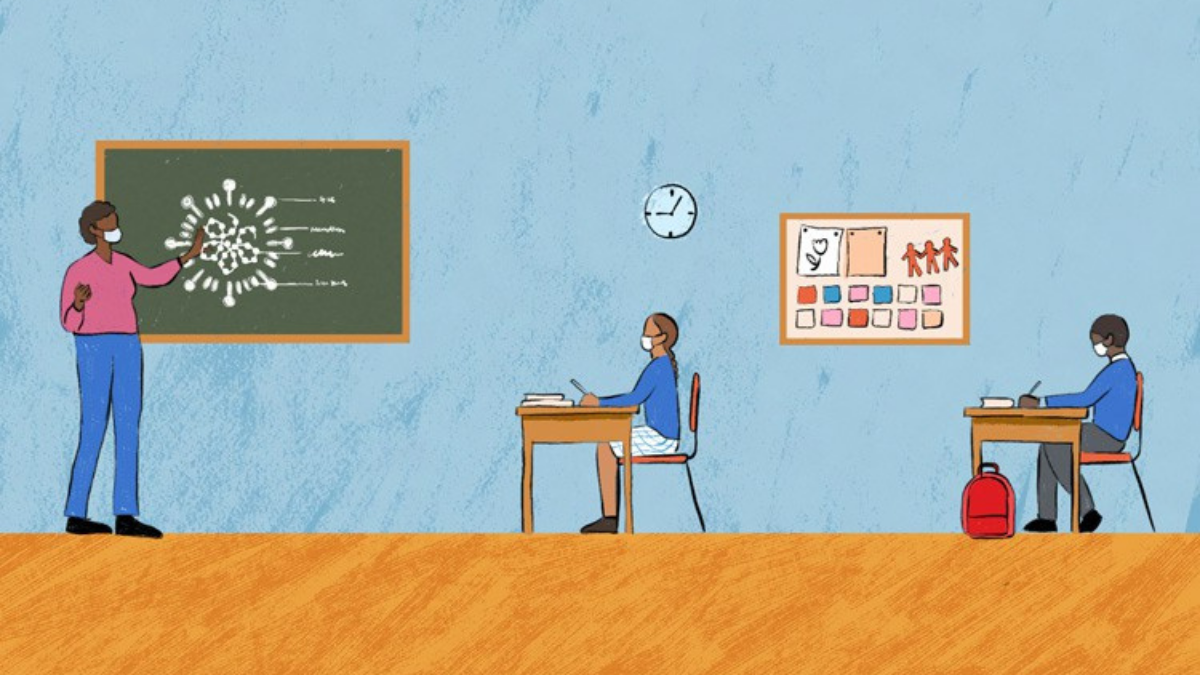“I live in perpetual fear of missing deadlines and other principals say the same”
- Principals across the country say they are battling to cope with the education department’s administrative demands.
- We spoke to a few principals who complained of a significant increase in bureaucratic duties since the onset of Covid, that has often prevented them from having meaningful engagement with staff and learners.
- The principals say officials set “unrealistic deadlines”.
- They say they have received threats over job security.
Since the onset of Covid, principals say the volume of bureaucratic demands from the Department of Basic Education has increased in its bid to ensure that schools comply with safety regulations. The increase has left many of them frustrated and battling to cope.
We spoke to a few principals. They have to remain anonymous because education department policy forbids them from talking to the media.
“I start my work day at 6am. Even though I leave school at 5pm, the workday does not end then. I must tend to all the emails and forms that I couldn’t get to during the day,” said a high school principal. He said the rapid changes to processes and last-minute demands make it difficult to complete tasks set out on his to-do list.
Tasks that have been added to principals’ to-do lists include: shortlisting and interviewing Basic Education Employment Initiative (BEEI) applicants, arranging enough matric exam venues and invigilators to comply with social distancing protocols and uploading the Covid screening results of all learners daily.
“All learners are screened when they enter the school and their results are sent to the department. The department also requires us to submit the Covid screening of matriculants writing exams, but this information is already sent to them when we send the screening results of all learners. There is a lot of duplication of information,” said one of the principals.
“I feel very disconnected from my staff and students. A lot of my time is spent behind a computer rather than engaging with people in the school,” he said.
This principal has been in the post for five years, but said he has had no time to inspect classrooms anymore because a significant amount of his time is spent dealing with the administrative responsibilities placed on him by the department.
He said that although admin tasks have always been part of his job, he could juggle this with teaching demands and other aspects of running a school. But now there are more meetings to attend, more compliance forms to fill in and more reports to complete.
According to the Department of Basic Education’s policy on the South African Standard for Principalship, principals are expected to: lead teaching and learning in the school, manage the quality of teaching and learning, manage human resources and extramural activities in the school and foster an environment that promotes the development and empowerment of everyone in the school.
But a primary school principal told GroundUp that school heads are increasingly expected to take on more managerial and administrative tasks, rather than being leadership-based.
The principal said this hampered principals’ abilities to quickly identify the “human and emotional needs of the school”.
“Right now, we are more focused on ticking [boxes on] forms and meeting deadlines because of the pressure we are under to meet those deadlines. I live in perpetual fear of missing deadlines and other principals say the same,” he said.
The principals said they have received threats over job security. They said officials set “unrealistic deadlines” and because they seldomly visit schools, their critiques are often far removed from the reality on the ground at schools. “They don’t know we are drowning in admin,” a principal said.
“I think the department forgets that we are also humans who have been affected by the pandemic. We have also lost people and require emotional support.
“How are we meant to build people and foster empowering environments when the bureaucratic demands keep us behind our desks all day?” he asked.
According to the NIDS-CRAM survey, 3,032 teachers died between March 2020 and February 2021. The report stated that “without the pandemic, one could expect around 1,354 publicly employed educators to die over this period, indicating a 124% increase due to Covid”.
Government response
The National Department of Basic Education did not respond to our questions sent last week.
The Western Cape Department of Education (WCED) said the provincial department is “well aware of the administrative demands that are placed on principals” and it is currently looking into ways to minimise the “administrative burden” on schools.
Spokesperson Bronagh Hammond said a common complaint by principals was that the online systems are slow, making tasks cumbersome. “The issue is not so much the actual system being used, but that connectivity to schools varies. This is being addressed via the Broadband initiative where the majority of the schools will be connected with a minimum speed of 100Mb/s.”
Another common complaint was about the duplication of information. Principals said the failure to streamline systems meant that they had to submit the same information, such as marks, several times to officials.
According to Hammond, the WCED is also looking into ways to eliminate the duplication of some administrative tasks.
Basil Manuel, executive director of the National Professional Teachers’ Organisation of South Africa (NAPTOSA) said that while they were grateful for the Presidential Youth Employment Initiative (PYEI), implemented as the Basic Education Employment Initiative (BEEI), there was no guarantee that this support would be permanent.
He said the PYEI has alleviated some of the burden placed on principals, especially in under-staffed schools. For example, help has been given in the form of classroom assistants and assistants who help screen learners.
“As a union, we will fight to ensure that this support is standardised and made permanent,” he said.
A high school principal said the initiative was helpful as these assistants could substitute when teachers were unavailable or sick. “We have divided most of our classes because of the Covid regulations, so while the one half was being taught, the other half could carry on working under the supervision of the assistant,” he said.
This article was originally published on GroundUp



